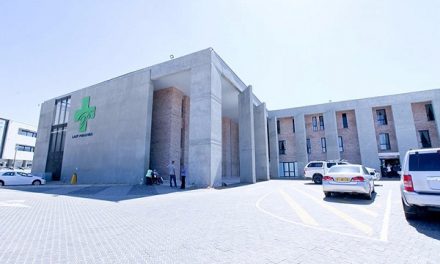
Health ministry launches National Drug Control Commission

By Clifton Movirongo.
The Ministry of Health and Social Services inaugurated the National Drug Control Commission on Friday, offering an opportunity for Namibia to reaffirm its political commitment to attain the objectives of the Ministerial Declaration under the United Nations Commission on Narcotic Drugs.
The National Drug Control Commission’s appointment is critical to ensure the efficient execution of the National Drug Control Master Plan’s (NDCMP) nine pillars.
The Minister of Health and Social Services, Hon Dr Kalumbi Shangula, said that the ministry intends to improve national management, oversight, reporting, monitoring, and evaluation of the drug commission, as well as implement measures to advance drug demand reduction and address health issues associated with drug use, particularly the use of injectable drugs.
According to him, this also involves the implementation of alternative measures to incarceration for drug abuse and the promotion of proportionate age and gender sentencing.
The drug commission also facilitates access to controlled drugs for medical and scientific reasons while preventing abuse.
Meanwhile, the United Nations Drug Control Programme (UNDCP) defines a drug master plan as a single document that addresses all national drug control problems.
“Furthermore, it will cover the implementation of efforts to limit drug supply, as well as combatting drug trafficking enablers such as guns, corruption, and money laundering.”
Shangula noted the country has ratified and acceded to the 1988 UN Convention against Illicit Traffic in Narcotic Drugs and Psychotropic Substances, the 2003 UN Convention Against Trans-National Organized Crime, the 2004 UN Convention Against Corruption, and the 1996 SADC Protocol Against Illicit Drug Trafficking.
According to the minister, these international and regional legal instruments have informed the national commitments, tactics, and interventions to combat illegal drugs.
We must recognize the profound impact the commission will have on the supply and demand reduction strategy. The commission will also play a leading role to coordinate various role players to reduce the harmful use of legal and illegal drugs.
“Available information and statistics indicate that Namibia is no longer simply a transit country for illicit drugs. There is an increasing number of users of illicit drugs of different ages. Unfortunately, even children of a very young age have become users of such substances, leading to addiction and other negative consequences,” he said.
“The harm caused by the use of illicit drugs, such as the intravenous administration of heroin and other drugs, is devastating to the physical and mental health of the drug users and could predispose them to a host of other illnesses such as HIV/AIDS, hepatitis, and kidney disease. Additionally, these drug users are often subjected to social exclusion, which further perpetuates the cycle of illicit drug use.
“Hence, we should take decisive action to counter drug trafficking to safeguard all people in Namibia from the devasting and long-term effects of illicit drug use. Drug trafficking is usually the first link in the chain of other forms of organized crime, leading to poverty and inequality among the drug users while the criminals of organized crime enjoy their ill-gotten wealth,” he stated.













































